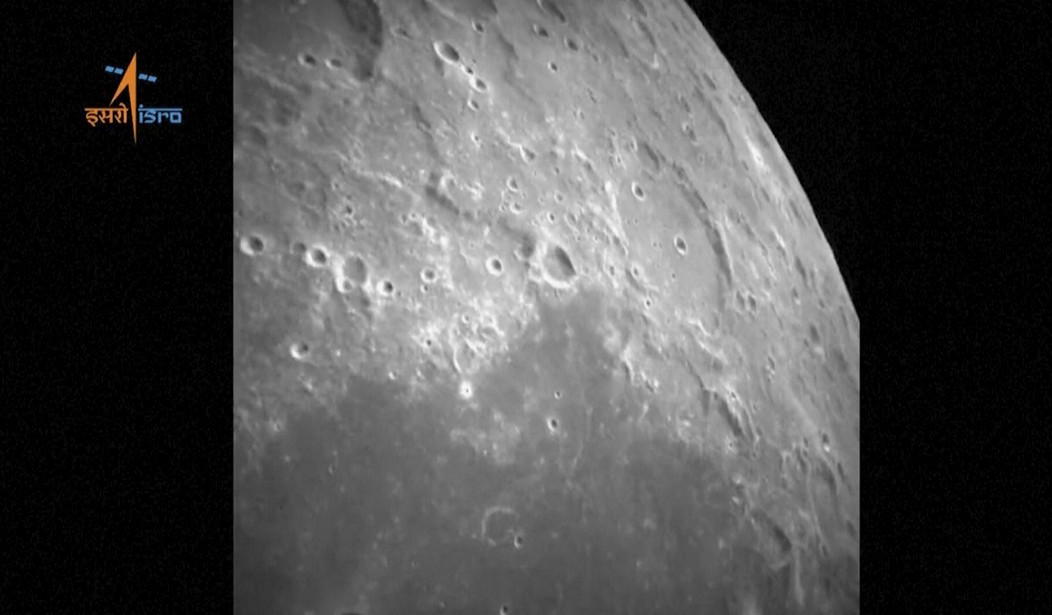This morning, the first American space mission intended to land on the moon in more than half a century lifted off successfully from Florida. Due to the roundabout path the United Launch Alliance Vulcan rocket will take, the attempted landing isn’t scheduled until February 23rd. Assuming the lander touches down successfully, it will deploy technology and science experiments for NASA, along with what’s being described as a collection of “odds and ends” for commercial customers. There is something of a space race taking place at the moment because another company has a rocket in Houston that’s ready to go. That one will take a more direct route to the moon and may even manage to land prior to the Vulcan. But not everyone is happy with the material being delivered to Earth’s satellite. (Associated Press)
The first U.S. lunar lander in more than 50 years rocketed toward the moon Monday, launching private companies on a space race to make deliveries for NASA and other customers.
Astrobotic Technology’s lander caught a ride on a brand new rocket, United Launch Alliance’s Vulcan. The Vulcan streaked through the Florida predawn sky, putting the spacecraft on a roundabout route to the moon that should culminate with an attempted landing on Feb. 23.
“So, so, so excited. We are on our way to the moon!” Astrobotic chief executive John Thornton said.
There was some controversy brewing over one of the commercial cargo loads on the rocket and it nearly delayed the launch. Among the “odds and ends” packed into the lander are a collection of DNA samples and human remains of noted spaceflight enthusiasts. They include “Star Trek” creator Gene Roddenberry and science fiction author Arthur C. Clarke. The human remains led the Navajo Nation, the largest indigenous tribe in the United States, to object to the mission. They claim that their people revere the moon in their religion and that putting human remains on it would be disrespectful. (CNN)
Navajo Nation President Buu Nygren said that allowing the remains to touch down there would be an affront to many indigenous cultures, which revere the moon.
“The moon holds a sacred place in Navajo cosmology,” Nygren said in a Thursday statement. “The suggestion of transforming it into a resting place for human remains is deeply disturbing and unacceptable to our people and many other tribal nations.”
The private companies providing these lunar burial services, Celestis and Elysium Space, are just two of several paying customers hitching a ride to the moon on Pittsburgh-based Astrobotic Technology’s Peregrine lunar lander.
I normally try to be understanding about the concerns of the indigenous American tribes, not only because of my family’s heritage but because of how horrendously they’ve been treated over the past few centuries. In this case, however, I’m not so sure. It seems a bit inconsistent to protest the landing of human remains on the moon when you’re not objecting to all the rest of the junk that we’ve dumped up there ever since Buzz Aldrin and Neil Armstrong landed. What’s so different or particularly offensive about human remains?
For that matter, the Navajo should probably have been objecting to the entire space program from the beginning based on these complaints. Keep in mind that Apollo 11 damn near crashed on the moon and they wouldn’t have made it home if Armstrong hadn’t pulled off a near miraculous landing after the onboard navigational computer failed. If it hadn’t worked, we would have had human remains up there for more than fifty years at this point and the space program likely would have been set back for decades.
Sending people’s remains into space does seem to be a growing trend these days. You can read more about the details of that part of the payload here. A company called Celestis Inc. has packed 330 small titanium capsules filled with DNA and cremation ashes into the rocket. 62 of them will be put down on the moon as a “permanent memorial.” The rest will be taken far out into space to “orbit the sun forever.” It’s an interesting way to keep the memory of your loved ones alive, but it’s also expensive beyond belief.








Join the conversation as a VIP Member